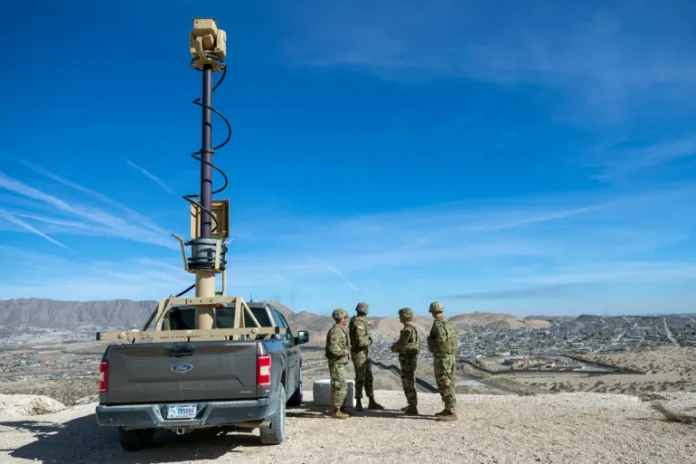In a striking development this week, a federal judge dismisses trespassing charges against nearly 100 migrants in New Mexico, dealing a blow to the Trump administration’s aggressive border policies. On May 15, 2025, Chief U.S. Magistrate Judge Gregory Wormuth ruled that migrants unknowingly entered a newly designated military zone along the U.S.-Mexico border, rendering the charges invalid. This decision, rooted in a lack of probable cause, has sparked heated debates about immigration enforcement and the legal boundaries of military involvement at the border. Let’s dive into this unfolding story, exploring its implications and what it means for the future.
Why Did the Judge Dismiss Trespassing Charges?
The crux of Judge Wormuth’s ruling lies in the migrants’ lack of awareness. The Trump administration recently transferred a strip of land along the New Mexico border to military control, labeling it a “national defense” zone. Migrants crossing this area faced trespassing charges, with potential penalties of up to 10 years in prison. However, Wormuth found no evidence that the migrants knew they were entering restricted territory. “The criminal complaint fails to establish probable cause to believe the defendant knew he/she was entering,” he wrote. Factors like inadequate signage, poor lighting, and the absence of clear warnings bolstered his decision.
This isn’t just a legal technicality—it’s a challenge to the administration’s strategy. Defense attorney Amanda Skinner noted that the dismissals covered all migrants appearing in court on May 15, signaling a broader rejection of the policy. The ruling underscores a critical question: can the government criminalize actions without ensuring people understand the rules?
| Key Facts of the Case | Details |
|---|---|
| Judge | Gregory Wormuth, Chief U.S. Magistrate |
| Date of Ruling | May 15, 2025 |
| Location | Las Cruces, New Mexico |
| Charges Dismissed | Trespassing in military zone |
| Reason | Lack of probable cause; migrants unaware of zone |
Judge Dismisses Trespassing Charges: Broader Implications
The dismissal exposes flaws in the administration’s border crackdown. By designating vast stretches of desert as military zones, the government aimed to deter illegal crossings with harsher penalties. Yet, as defense lawyer Carlos Ibarra quipped, “It’s just a bunch of desert.” The judge’s ruling suggests that such policies require clear communication—something the administration overlooked. Posts on X reflect public sentiment, with users like
@9Joe9 mocking the lack of “ample warning” for migrants “just coming over the same as usual.”
This setback doesn’t erase other charges. Most migrants still face misdemeanor illegal entry counts and potential deportation. However, the dismissal weakens the administration’s leverage, raising doubts about the feasibility of militarizing border enforcement. Could this prompt a policy rethink, or will prosecutors appeal with stronger evidence? The coming weeks will tell.
Other Recent Cases: A Pattern of Dismissals?
The New Mexico case isn’t isolated. Earlier this month, a judge dismissed charges against Newark Mayor Ras Baraka for alleged trespassing at an ICE facility on May 9, 2025. Baraka, arrested during a protest, called the charge “silly” and was released after arguing selective prosecution. Similarly, on April 30, 2025, charges against alleged MS-13 leader Henrry Villatoro Santos were dropped to expedite his deportation. These cases highlight a judicial pushback against overreaching charges, especially in immigration contexts.
What’s driving this trend? Judges seem wary of charges lacking solid evidence or appearing politically motivated. In Baraka’s case, jurisdictional issues and selective enforcement were key. For Villatoro Santos, prosecutors prioritized deportation over prolonged trials. These rulings suggest courts are scrutinizing the government’s tactics, demanding accountability.
What’s Next for Border Policy?
The New Mexico ruling leaves the Trump administration at a crossroads. Will it double down with more signage and public awareness campaigns, as suggested by attorney Granberg? Or will it pivot to alternative strategies? The dismissals have energized critics, who argue the policy was poorly planned. As one X user,
@wdholland2003, noted, the decision marks a “setback for Trump administration efforts to raise penalties for illegal crossings.”
For now, the migrants involved face uncertain futures, likely deportation on lesser charges. But the broader fight over border enforcement is far from over. This case could reshape how the government balances security with fairness, making it a story worth watching.
Want to stay informed on immigration policy and court rulings? Subscribe to our newsletter for real-time updates and expert analysis!
